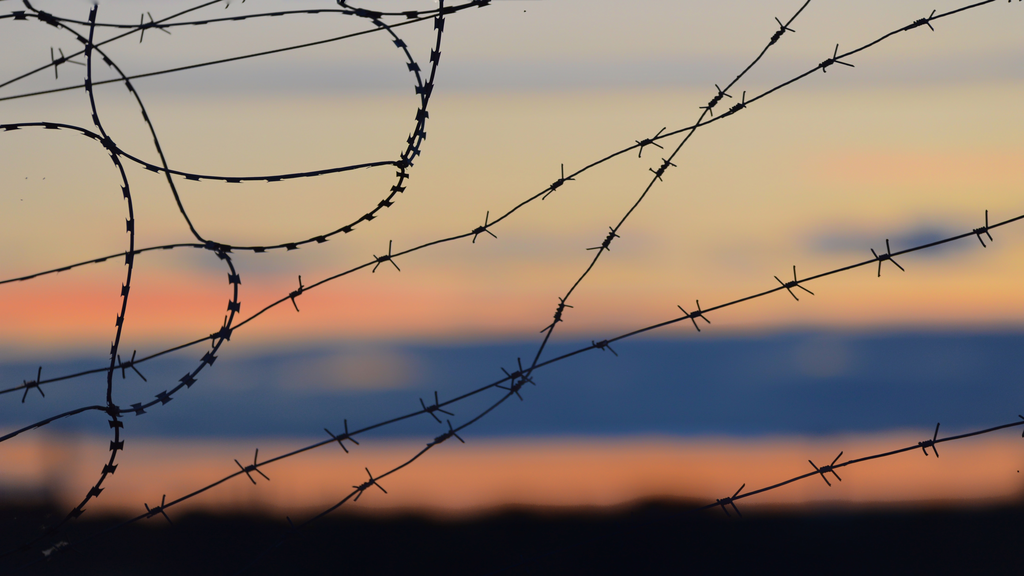Muslims Down Under had the privilege of interviewing Tasneem Chopra OAM, ambassador of the ‘Racism. It Stops With Me’- a campaign launched by the Human Rights Commission, Australia. Tasneem is a first-generation Muslim who has done advocacy work on navigating diversity, inclusion and equity, and is passionate about female representation. In 2018, Tasneem was named an Anti-Racism Champion by the Australian Human Rights Commission and was also appointed as the ambassador of Women of Colour Australia. Among her many achievements, she received an Order of Australia Medal (OAM) for her services to community, diversity and inclusion leadership.
This is a transcript from portions of this interview. Click below to listen to the full interview.
Sitara: To begin with, like, you know, could you please enlighten us a little more about this particular racism campaign and what it really aims to do?
Tasneem Chopra: The purpose of this campaign is to pivot away from the way the campaign was directing itself a few years ago, which was really speaking to individuals’ experiences, which is important. But, rather than talking about racism in general, this campaign is really speaking to people who’ve never experienced racism, and to those who have no lived experience of racism to make them understand through the eyes of someone who has. These could be people that they are working with, or studying with, living amongst, but have perhaps never even stopped and paused to consider what the impact could be for them, do they even experience it?
There are questions that are asked to a myriad of people, ranging from white Australians to First Nations people, to people of colour. As in, is your name a red flag at a security checkpoint? Have you ever been teased at school? Have you ever experienced racism after playing a game of sport? And it’s asked to other people, and I think it’s just a position of people who have never experienced racism who say, Well, no, I haven’t or no it did not occur to me. So, none of this is scripted. These are all authentic answers given from people who are relaying their personal truth.
Sitara: Definitely, I resonate to that as well, having gone through that set of questions myself, you know, the answers I had, compared to my friends, when we were talking and discussing this initiative, they varied so much, and they definitely have this privilege. Although there’s nothing wrong with having this privilege, you also need to be aware that it is a privilege to not be flagged at an airport, or be bullied in school, because you have a different name or a different skin colour. So, it is a variety of things that sort of go unseen, with people who don’t realise racism is an issue.
Tasneem Chopra: I can also add to that, what you’re saying is true, and on top of that, I’d say the privilege also doesn’t afford you the luxury of diminishing or dismissing someone else’s experience of it. Just because you’ve not experienced it doesn’t mean, less, or made up. I think that’s the critical difference here, it’s respecting what has actually happened.
Sitara: The question I always used to ask when going through these racism campaigns and watching these ads is, are we really talking to the right people? People like you and I, and people of different backgrounds, we resonate with these campaigns because these are our lived experiences. However, the people who we’ve experienced racism from, don’t even realise it is a problem.
Tasneem Chopra: I can recall a white person being asked a question, have you ever experienced being called names after a game if you’ve lost the game specifically because of your race? And they looked puzzled at the question. Like, how could that be a thing? And then they sort of sit with that for a second and realise they’re being asked that question because in fact, it is a thing, but not for them. And it’s almost a sense of, I wouldn’t say embarrassment, but almost a bit of shame that they have to say, No, I haven’t. Because they know that that this happens to people. It’s something they’ve never even had to register. But I think it’s very powerful because it is so confronting with what our everyday truths are.
Sitara: Correct me if I’m wrong, but from one of our previous discussions you mentioned you’re a first-generation Australian Muslim who arrived in Australia at the age of four in 1974. At that time there was a rollback in the white Australian policy, and they were finally allowing non-white immigrants. So, what was your experience like growing up at that particular time?
Tasneem Chopra: So, I grew up in a very parochial country town in central Victoria at the time.… But I did for the most part felt like a brown pea in a white pod. And I felt different. I felt I stood out and I felt very conscious of my race because I was the one brown kid in class. In my early childhood, I had plopped it out, until this campaign started, when I actually had to interrogate those memories. But I actually blocked out the name-calling that I’d experienced in the playground and being chased into trees, and bushes to hide, and hide from boys during recess and lunchtime, who were calling out slurs to me. I wasn’t equipped to respond to them. I would have been in grade one at the time, so I was literally hiding amongst the trees and these kids hadn’t seen a brown kid before. Which is interesting, because I proceeded to go to high school in the same town, subsequently, with a lot of young kids who clearly now, were kids from the stolen generation, they’ve been taken from their parents. So, they were Indigenous Australians amongst a school community, but we never talked about it, we never spoke about that, we never addressed that – it was considered a very separate issue. In fact, they weren’t even considered Indigenous from the point of history classes or when we talked about cultural identity, it never came up.
I think that’s so intrinsic to what is part of what was wrong historically with the way education in Australian history was taught in this country during the last century. Specifically, I’d say it’s improved now, but still has a long way to go. But politicians aren’t necessarily on the same page if you look at the antics of Pauline Hanson. There’s still a long way to go in bringing mindsets on board. But I don’t believe for a minute you will bring everybody on board, I don’t think everyone is going to see the wisdom of being inclusive and seeing the benefits of having a united society because some people are hell-bent on upholding an ideology of superiority.
Sitara: What are some challenges going back to the 70s and 80s that the first generation of non-white immigrants would have faced compared to now and vice versa? What are some of the new challenges that new Australians experience today, that people in the 70s and 80s could not have imagined facing? Is there a difference between the sort of racism we experience now, compared to the racism we experienced back then, or what you may have experienced in your experiences growing up in high school?
Tasneem Chopra: Overall, the experience of racism for people of colour outside of our First Nations people is a lot more. It’s still structural for the most part, it is much more covert than it is overt. 30-40 years ago, people wouldn’t hesitate to call out something hostile to you or say something disparaging about the way you looked. If you’re a Muslim, if you wore a hijab, you were much more free game, even in the last 10-15 years, that was quite a commonplace in retaliatory attacks against Muslim women after a terrorist event, for example, even overseas, that does still happen not at the same rate that it did after 9/11. But it still will occur, there will still be nasty slurs made, but it’s a lot more subtle, the discrimination has manifested itself through more subtle forms of entry points. For example, applying for a job, if your name was Arab sounding or Middle Eastern, or even, if your accent was very thick, or strong, the ability to pass through the interview phase, we know has been statistically proven to be a lot harder than if you’re more Anglo, and we know that’s true, because people of diverse backgrounds, who then anglicised their name to apply for the same job, get a call-back.
So, there is discrimination occurring in the way we assess interviews, there’s discrimination during the interview when people are suddenly presented with you speak really well for a Kenyan, or is that thing on your head necessary? Do you need to wear that? And what I mean to that extent is we have progressed in that, there are laws now to protect individuals who experience those, those micro racisms to be able to then address them, and have them explored and mitigated hopefully, but they still occur….
Sitara: You’ve had many successes in your career, from what I’m aware of, but going back to a personal point of view, obviously, racism at any point of time, in one’s life is just never okay. For those who’ve had these encounters, which often sadly, are even very traumatic, and do affect our daily lives, our confidence, and our mental health. What have your personal experiences been of racism and injustices that have affected your personal life or hindered something you may have wanted to go a particular way, but didn’t?
Tasneem Chopra: Well, I had a recent experience just only a few weeks ago, where I was contacted by a senior executive from a very respected institution here in Australia, who wanted me to assist them with some research that we’re doing on diversity and inclusion. They were reaching out to me in my capacity as a consultant and as a woman of colour, because I knew I had literally skin in the game on this issue and were asking me to review content for their research. They said this content requires you to go through a series of terms, there are about 600 terms, and terms across eight pages of material, and could I please do this in two weeks as a favour to them?
So, I read it. I read the email three or four times just to confirm that they wanted me to do this for free. To basically use my expertise, skill, and time to do them a favour and they were a senior executive and I’m pretty sure they’re on a six-figure salary. They were just reaching out to me because they thought that I’d be doing my people a favour by undertaking this research. It still saddens me and disappoints me that there are those with influence and position in our community, who don’t value the contribution that diverse Australians make or value it to the point where they think it’s to be remunerated, or that it’s actually worth being what it’s worth being paid for all because they don’t see it as actual work.
So, they look at the exploitation of people of colour, that well, they don’t see it as exploitation, they still look at it as them giving them a benevolent opportunity, which is a very sort of white saviour platform from which to operate. That disappoints me when I sort of think, well, surely, we’ve moved away from this….
Sitara: I am not surprised, and that is the sad bit about it because unfortunately, being in my last year of journalism and I will need to reach out and gain experience for my own benefit and to build my skills. But the one legit fear that I have is that I wouldn’t know when I would be exploited because of this benevolence approach, as you mentioned, it’s so hard to differentiate with people like us. That’s I think, one of the things young people of colour do struggle with.
Tasneem Chopra: Know your value and don’t be smalled or intimidated into taking your value off the conversation table, because it’s something that is there. And, people will be shocked by it initially, but you know what, they’ll also respect you for it. So, I made a point of getting paid, even if it was $50 or $20 In the beginning, just so that they know I’m not doing this for free, because it’s of value, and it makes people that actually value your work better too because they know you’re doing this as a professional.
Sitara: How do you think every day Aussie can achieve the three objectives of this campaign in more of a practical way, particularly the objective ‘to engage more Australians in conversations about racism and anti-racism?’ How do we talk to people who are not even aware that this is an issue? How do we approach that? And how can we do better in engaging people like that in conversations like this?
Tasneem Chopra: I mean, just calling it out when you see it. So, when you were talking about the ad or the ad campaign, ask if you have seen it? what did you think about it? Has that ever happened to you? And so just bringing it up, so that people address issues and experiences they’ve never had too before. Have little conversations around with people so that they get a sense of context about how insipid racism is in that it permeates so many different ways and opportunities in life that we don’t often think about from our day-to-day existence from the minute we wake up to the minute we go to bed, think we might have 10-15 interactions in the day, for people of colour, these interactions many of them could be mired in people’s perceptions of them, which means that your code-switching, the way that you respond. So, when you’re at home, you can act a certain way. But you’re ignored for the first three or four moments in a conversation outside until you speak really loudly, or you can’t shout too loudly, because then you’ll look aggressive and angry, but you can’t be too quiet either because you’ll be completely invisible. It’s that constant vigilance about how we conduct ourselves in the public sphere that is really quite exhausting….
The optics are good, the periphery is good, but the day-to-day experience, when you break it down, the minutia shows that there are a lot of experiences and micro-racisms, and micro-aggressions, and micro-sexisms that all Australians continue to endure. Until we actually accept and address that it’s happening in our day-to-day lives, we’re not going to shift the needle. If we ignore it, we put our heads in the sand and ignore the big fat racist elephant in the room, we’re not going to make a difference about it.
So, don’t be the bystander who does nothing, be the bystander who does something, and I think that this mantra is sort of inherent to the momentum of this campaign, it’s not enough to not be racist, you need to be anti-racist. What is your workplace doing about racism? What’s your school doing? What kind of programs and videos are you showing students in high school that interrogate issues of inclusion that are the First Nation story of multicultural voice? There are so many resources that exist now, the website alone for the Human Rights Commission has so many tools that you can access from workplace to education. So, bring it home, bring it to work, discuss it with your peers, your colleagues, with your family, and say, Do you know if this is happening to anyone? What are we doing about it?
Sitara: The Muslims Down Under podcast and this campaign, it started as an educational campaign, it was a call to tackle far-right extremism, xenophobia, racial discrimination, and other social issues. What can everyday people do better? How can people benefit and engage more with campaigns like ours?
Tasneem Chopra: Well, I would really go out there and talk about the inherent racism we have within our own communities. So, we know that as Muslims, we are already copping with a lot of Islamophobia in different ways. Islamophobia is on the agenda, we see it, we know it, but internally, I don’t think we’re casting enough of a lens on the issues that we have of whether it’s colourism or racism that’s occurring within say, the South Asian Muslim communities that we might attribute towards people from our community who have a darker skin colour. I know that’s not a faith-based issue, but it happens within our communities, many of which come from the South Asian diaspora. So, I think that needs to be acknowledged needs to be put on the table. That’s not Islam, it’s not an Islamic ethic or an attitude that reflects good Ahlaq and good conduct. That’s not who we are. We are a nation of tribes that have been put together to get to know one another. This idea is that we have a purist ideology about who we are, who we are as a nation, and people being very hostile and discriminatory, and that needs to be called out.
So, racism stops with all of us, that the idea that one of us is better than the other, simply on account of an ideology, to me, is falling short of what I think is the Islamic ideal. I think we as people are better than that, in the sense we should know better than to kill one another, believing that that’s the right thing to do as Muslims, it’s just so counterintuitive. I don’t even know where to begin to unpack that one, we need to have this conversation because again, this is going to be a trend and that’ll be occurring in our community more so in the next 10 to 15 years. So, let’s be open-minded, let’s have a conversation, and let’s be true to the line of what Islam says and let that override what our cultural bigotry and arrogance might be saying.




